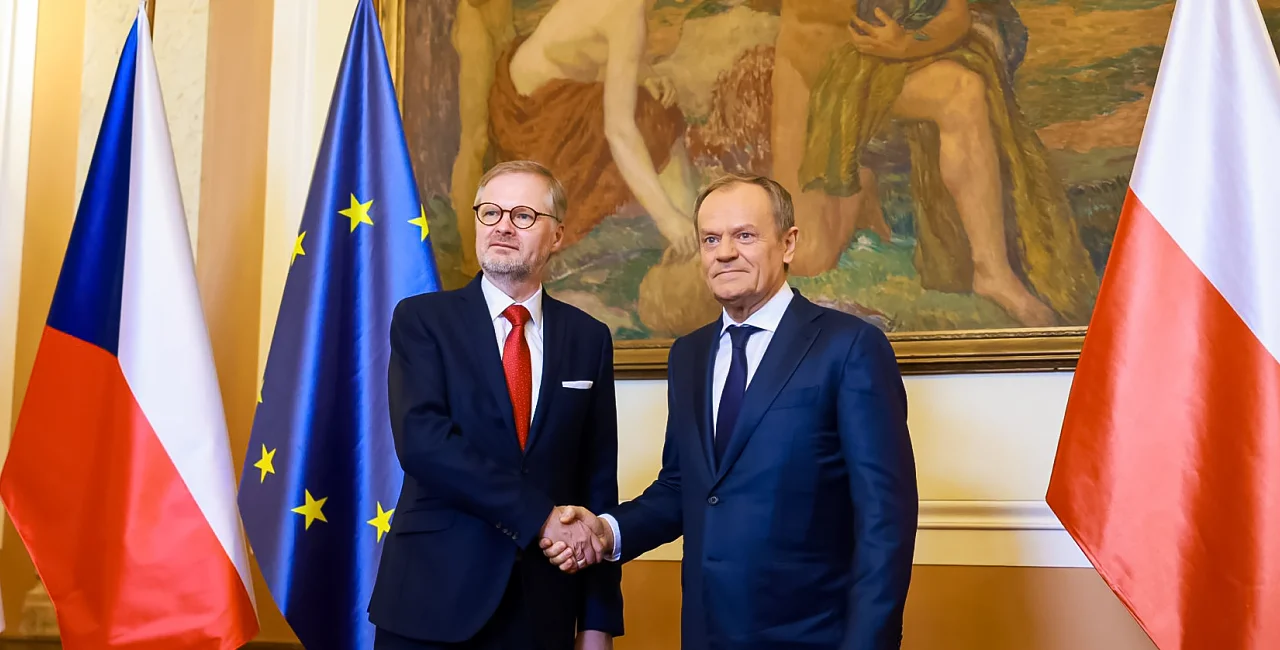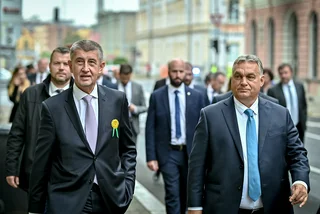The Visegrád Group’s prime ministers will gather in Prague on Tuesday to navigate crucial topics like energy security, the EU’s strategic agenda, illegal migration prevention, and International Visegrád Fund support.
However, the spotlight is on their divergent views on aiding Ukraine, intensifying with Slovak Prime Minister Robert Fico’s controversial pre-meeting remarks.
Tensions are high as the prime ministers comprising the Visegrád Group (V4) – Poland’s Donald Tusk, Czech Republic’s Petr Fiala, Slovakia’s Fico, and Hungary’s Viktor Orbán – remain divided in their stance toward supporting Ukraine amid its ongoing war with Russia.
Over the weekend, Fico described the West’s “failed strategy” regarding Ukraine, its desire to further back Kyiv, and agreeing to a total escalation of tensions. On Monday, before he departed for the summit on aid to Ukraine in Paris, Fiala said he opposed his Slovak counterpart’s views.
“I cannot accept the narrative that those who fuel the conflict are Ukrainians or Western countries. The culprit is clear; it is Russia’s aggressive policy,” Fiala stated.
Tusk, who Fiala welcomed to Straka Academy on Tuesday morning, has also voiced concerns about Hungary and Slovakia’s reluctance to support Ukraine: Orbán has also criticized military support for the war-struck nation.
“No compromise is possible with the reluctance of the Hungarian and Slovak leaders to back Ukraine against Russian aggression,” Tusk told AFP, adding that he believes the V4 is only effective when all members are “resolute supporters of strengthening the West.”
Czech PM Fiala shares Tusk’s concerns over the ambiguous positions of Slovakia and Hungary regarding the war. However, he says dialogue is essential. “I'm not happy to meet with colleagues I disagree with, but someone has to do it to find consensus on EU security,” Fiala told reporters.
According to Tusk, how the group navigates these divisive issues will show if the V4 format still makes sense or risks blocking important decisions.
As a rotating chair, the Czech Republic is working to find unity despite complications. But the stakes have rarely been higher for the future direction of this crucial regional alliance, as the meeting's outcome may shape V4’s future coherence and influence key European decisions.












 Reading time: 2 minutes
Reading time: 2 minutes 


























